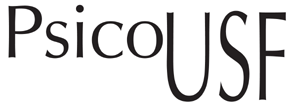Intelligence is traditionally measured by psychometric tools. In early childhood (0-36 months-age) the cognitive assessment is generally based on psychomotor achievement criteria. Half a century of researches has shown that there is little or no association between the requirements of classic scales of child development and the later cognitive performance in childhood or adulthood. Those results strengthened the theories that affirm the discontinuity of cognitive development throughout life span. In recent years, however, there are evidences that processing information measurements can answer the challenge of finding higher correlation between the intelligence scores of the first years of life and latter than those obtained through psychomotor developmental tests. Scores of visual habituation and novelty preferences, relatively free of motor requirements, have shown some predictive validity in relation to the cognitive development. The present study addresses some of the main studies on this issue.
Intelligence; Childhood; Habituation; Novelty preference



